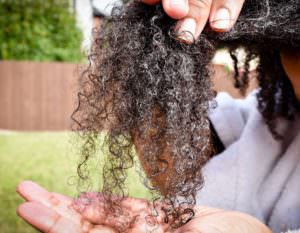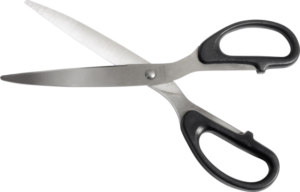What Happens When You Skip Deep Conditioning
 Deep conditioning my hair can sometimes feel like the bane of my existence. Truth is, I hate the process. It takes forever, which lengthens the amount of time I have to dedicate to doing my hair or getting my hair done. It’s an all-around bore.
Deep conditioning my hair can sometimes feel like the bane of my existence. Truth is, I hate the process. It takes forever, which lengthens the amount of time I have to dedicate to doing my hair or getting my hair done. It’s an all-around bore.
I don’t like it, but I completely respect the fact that it’s a necessary evil. For any head of hair to be its healthiest, a deep conditioning* step of your routine is vital.
There are many myths floating around about what deep conditioners actually do, whether or not they’re necessary and what happens to your hair if you skip the step entirely. Let’s explore some of those myths and figure out what happens if you skip deep conditioning.
What deep conditioners do
First things first. What does deep conditioning do? The short answer is that it benefits your hair. How, exactly that happens, can be somewhat of a mystery.
If you’re unsure or down right wrong about what you think deep conditioners do, you may be missing out on the real benefits it can provide. And, yes, there are real benefits to deep conditioning* your hair regularly.
Hydrates the follicles
The follicle of your hair is often neglected. Because it sits near the base of the scalp, many times hair products aren’t even applied to the follicle. The follicle can do its intended job with or without deep conditioner* or other products, but tending to this area of your hair is helpful.
Deep conditioners moisturize the follicle. A moisturized environment is best to promote healthy and steady hair growth. When the strands of your hair grow in at their healthiest, the things we do to them once they’re grown out have less of a chance of causing damage to the hair.
 Seal the cuticle layer
Seal the cuticle layer
Our hair’s cuticles take the brunt of what we do to our hair. The cuticle is tougher than the inner layers of the hair strands and are in place to provide protection to those more delicate layers that make up the hair strands.
Conditioners, by nature, adhere to the outer cuticle layer of the hair and help it to lie flat. When the cuticle is flat and smooth, it provides the most protection to the inner layers of hair. Deep conditioners go a step further. Because they are designed to be more potent and more powerful than regular conditioners, they are even more effective at smoothing and flattening the cuticle layers.
Coat the hair
As stated above, conditioners lightly coat the strands of your hair. If you’ve ever done a poor job of rinsing out your conditioner, then you know this first hand. You can feel the difference when conditioner is applied to your hair. It feels smooth and silky. Even after thoroughly rinsing the hair, there is a fine layer of conditioner doing its job and coating the hair.
Deep conditioners do the same thing, but they go one step beyond coating the superficial layers of your strands. A properly applied deep conditioner* not only covers the outer layer, but it will penetrate the hair shaft and provide the same type of layered protection to the layer of hair just beneath the cuticle.
This fortifies your strands in a way that a regular conditioner is unable to.
Adds ‘stuff’ to your hair
Deep conditioners are powerful. Depending on the formulation of the product, they can add protein, moisture and even oils* to those deeper layers of your hair.
Hair is porous and this is what allows deep conditioners to really get in there and deposit nutrients to the layers of your hair that are otherwise left neglected. Protein is a common additive in deep conditioners. Because the hair is made up of protein which is stripped during heat application or chemical treatments, a good deep conditioner* can be a life saver for your hair.
It’s important to note here that deep conditioners cannot truly repair damaged hair. They can only coat damaged hair and give it the illusion of being healthy.
What happens over time if you skip deep conditioning?
You will see that your hair is dryer more brittle. This leaves your hair prone to breakage. Nobody wants that. Your hair may also appear frizzier because the cuticles are not smoothed down so they won’t lie flat. Raised cuticles also lead to more damage from heat styling and chemical treatments which penetrate the hair more than recommended because of the gaps raised cuticles create in the hair strand.
All in all, deep conditioning* is very much an essential step to any solid hair care regimen. And even though we hate it and the time it takes, it shouldn’t be skipped. There are plenty other things you can cut corners on, but don’t let it be deep conditioning*. How often do you deep condition? Comment below!

